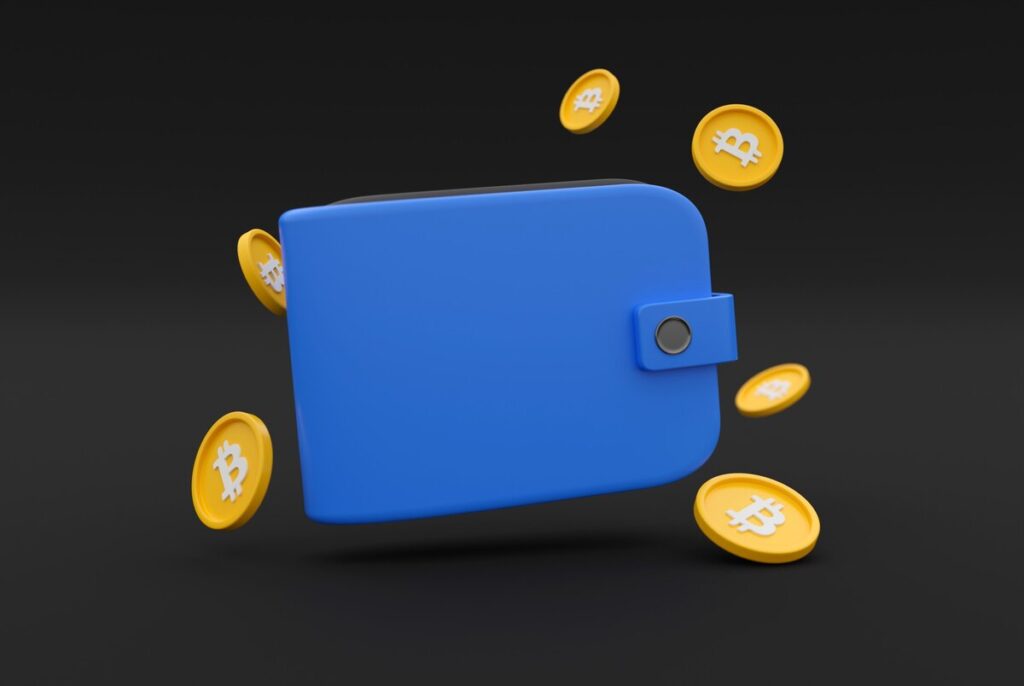Having a safe and dependable method to keep your digital possessions is crucial as the acceptance of cryptocurrencies grows. Cryptocurrency purses can help with this
Digital wallets called “crypto wallets” let you keep and control your coins safely. Hardware, software, and paper wallets are the three major categories of cryptocurrency purses. We will delve deeper into each of these pocket categories in this article.
Hardware wallets
With the aid of hardware wallets, you can keep your coins offline.
These accounts are frequently regarded as the safest choice because they are not online, making them less susceptible to hacking attempts.
A PIN number is usually needed to access your digital assets with hardware wallets, which typically take the form of USB sticks.
The Trezor, Ledger, and KeepKey electronic wallets are a few well-known models.

These gadgets give extra protection features like two-factor authentication, backup and recovery choices, and support for a number of cryptocurrencies.
Despite the high degree of protection that hardware wallets provide, they can be costly and may not be as practical as other wallet kinds.
Additionally, you risk losing access to your digital possessions if you misplace your hardware wallet or neglect your PIN number.
Software wallets
Digital wallets that are loaded on your PC or mobile device are called software wallets.
You can use the internet link on your smartphone to carry out deals and keep your cryptocurrencies in these wallets.
Software wallets usually come with a high degree of convenience and are free to use. Software wallets come in a variety of forms, such as desktop, smartphone, and internet wallets.
Because they are not online, desktop wallets that are installed on your computer provide a high degree of protection.
On the other hand, mobile wallets are loaded on your mobile device and give you quick access to and control over your digital assets while you’re on the go.
Web-based online wallets give you access to your digital possessions from any location with an internet link.
Exodus, Electrum, MyEtherWallet, and Coinbase are a few well-known software wallet instances.
Numerous features are available with these wallets, including support for multiple currencies, two-factor authentication, and backup and restore choices.
Although software wallets are extremely convenient, because they are linked to the internet, they might not be as safe as physical wallets.
Your digital possessions may also be in danger if your computer or mobile device is compromised or infected with malware.
Paper wallets
Cold storing methods like paper wallets let you keep your digital valuables off-line. Paper wallets are basically a sheet of paper containing your public address and private key.
Simply scan the QR code on the paper wallet and input your private key to gain access to your digital possessions.
Paper wallets provide a high degree of protection because they are not online and cannot be compromised.
Paper purses are additionally frequently regarded as the most economical choice because they can be produced using free software.
However, because you have to physically keep the paper wallet in a secure location, they may also be the least practical choice.
Additionally, you might not be able to access your digital possessions if your paper wallet is lost, stolen, injured, or destroyed.
Choosing the right crypto wallet
There are a number of things to take into account when selecting the best cryptocurrency storage for your requirements.
Security, ease of use, and expense are some of the most crucial aspects to take into account. The ideal choice for you might be a hardware wallet if security is your top concern.
However, a software wallet might be a better match if you’re searching for a more practical choice.
For those who are on a tight budget and do not regularly need access to their digital assets, paper wallets can be a decent option.
It’s crucial to take into account the unique characteristics and capabilities of each wallet.
A broader variety of coins may be supported by some wallets than others, and some may offer extra security features like two-factor authentication or backup and recovery choices.
Before choosing a wallet, it’s crucial to conduct a thorough study on each one to make sure that it suits your unique requirements and preferences.
A web3 wallet might be a good choice for you if you’re interested in decentralized apps and the developing web3 ecosystem because it enables you to securely engage with these applications right from your wallet.
Guidelines for secure crypto wallets
Regardless of the kind of cryptocurrency wallet you select, it’s critical to adhere to secure wallet best practices.
Here are some pointers for keeping your cryptocurrency funds secure
1) Never give anyone your secret passcode
2) Make sure to activate two-factor authentication and use secure passwords.
3) Keep your security and wallet programs up to current
4) Your paper pocketbook should be kept in a protected place
5) Use renowned platforms and wallets only.
You can contribute to ensuring the safety and security of your digital possessions by adhering to these best practices.
Conclusion
In conclusion, anyone who wishes to safely keep and handle their digital assets must comprehend the various kinds of crypto wallets that are accessible and their features.
To keep your crypto assets secure, you should emphasize security and adhere to best practices, regardless of whether you choose devices, software, or paper.
You can profit from cryptocurrencies with ease if you have the appropriate wallet and the right attitude.
About author: Andy Braddell is a tech enthusiast and a cryptocurrency investor who is determined to transform the payments industry landscape. Over the years, he has kept up with the latest developments in the industry, including the rise of Ethereum and the explosion of initial coin offerings (ICOs).
